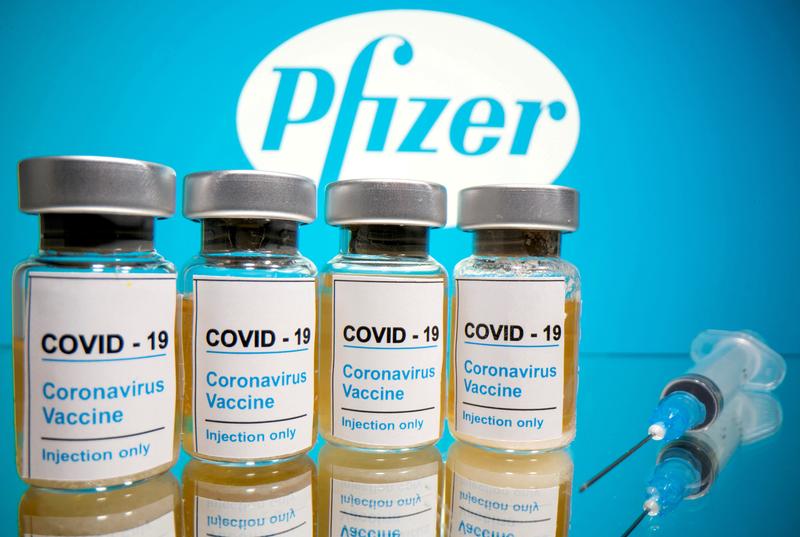As the world looks to the covid vaccine to provide immunity from a corona virus outbreak that is believed to be responsible for over 2 million deaths worldwide as of January 17 2021, (worldometers.info), access to the approved vaccines has been slow.
Here in Costa Rica, less than 25000 doses were given in the first 3 weeks since vaccinations began, which is 80% of what the CCSS had distributed but far less than the 87,750 doses received. At this rate it would take 240 weeks or over 4 years to immunize half the population with the first dose.
As scheduled deliveries increase over the coming weeks the Costa Rican government plans to increase access and speed up the immunization process.
In the USA, 12.28 million have received the first dose of the vaccine as of Jan 15th according to the CDC, while over 31 million doses have been distributed. Federal health officials had expressed a goal of vaccinating 20 million with the first dose of the vaccine by the end of December, and another 50 million more by the end of January. That's just not possible.
Health and Human Services Secretary Alex Azar said Pfizer was only able to make half of what it thought it would be able to produce by the end of 2020.
In the US, the federal government manages the distribution to the states, each state is responsible for issuing the vaccine to the people.
The CDC has recommended that healthcare personnel and long-term care (LTC) facility residents are the first priority, followed by frontline essential workers and people 75 and older, however, each state can issue their own priorities.
The approved vaccines from Moderna and Pfizer are the first vaccines to use mRNA whereas most previous vaccines use inactive or contain dead virus to initiate an immune response. Each person that receives a vaccine requires a second dose 21 days following the first for the Pfizer vaccination and 28 days later for the Moderna vaccine, according to the manufactures recommendations.
There have been concerns over a few cases where people have died after taking the first dose of the vaccine, however it may not be related to the vaccine.
The CDC has stated it is still possible to be infected with the coronavirus after the first vaccination because the vaccine did not have enough time to provide protection. It can take 2 weeks to a month after the first shot to develop an immune response, so people are still vulnerable to the virus, if exposed.It is also possible that people who receive two doses of the vaccine may be protected from becoming sick, yet they could still spread the virus to others.
Countries including Canada, the US, UK and other EU countries are experiencing delays in delivery of the Pfizer/BioNTech coronavirus vaccine due to necessary upgrades in the in production facilities in Puurs, Belgium.
In response, several countries are planning to prioritize giving the first vaccine to more people and delaying the distribution of the second dose. The problem is there is no data to support this action.
When administered in two doses, the Pfizer vaccine is stated as being 95% effective, however in a FDA review the effectiveness after one dose is only up to 52.4% effective. Changing the recommended schedule is a political decision, not a scientific one, especially when the manufacturer does support the change. There simply is no scientific data to support this.
Despite the delays, there is some good news.
A recent study from Queen Mary University of London found that 89% of healthcare workers analyzed carried neutralizing antibodies 16-18 weeks after infection, and most had T cell immunity. B cells make antibodies and T cells, white blood cells both have a role in preventing infection from the SARS CoV2 virus. T cell responses were found to be higher in those who showed classic symptoms than in those who had asymptomatic infections, whereas both displayed eqivalent antibody responses.
In other words, this study indicates that those who had a mild or displayed no symptoms of Covid 19 while infected still show signs of immunity 4 months later.
In another study the authors suggest the presence of both antibodies and T cells after infection, may reduce the severity of the illness and enhance long term immunity.
Globally there are over 25 million active cases and over 67 million have recovered. That's a 97% recovery rate, without the vaccine. It is unknown how many more people may currently have or have had the virus and have not been tested or display no symptoms.
Considering these recent studies, potentially upwards of 61 million people who have already had the disease could be immune, without the vaccine, and potentially millions more. With this in mind, it might be advisable for governments to prioritize providing the manufacturers recommended two doses to those who have received the first dose and to those in urgent need.
The rest of us may just be fine.










